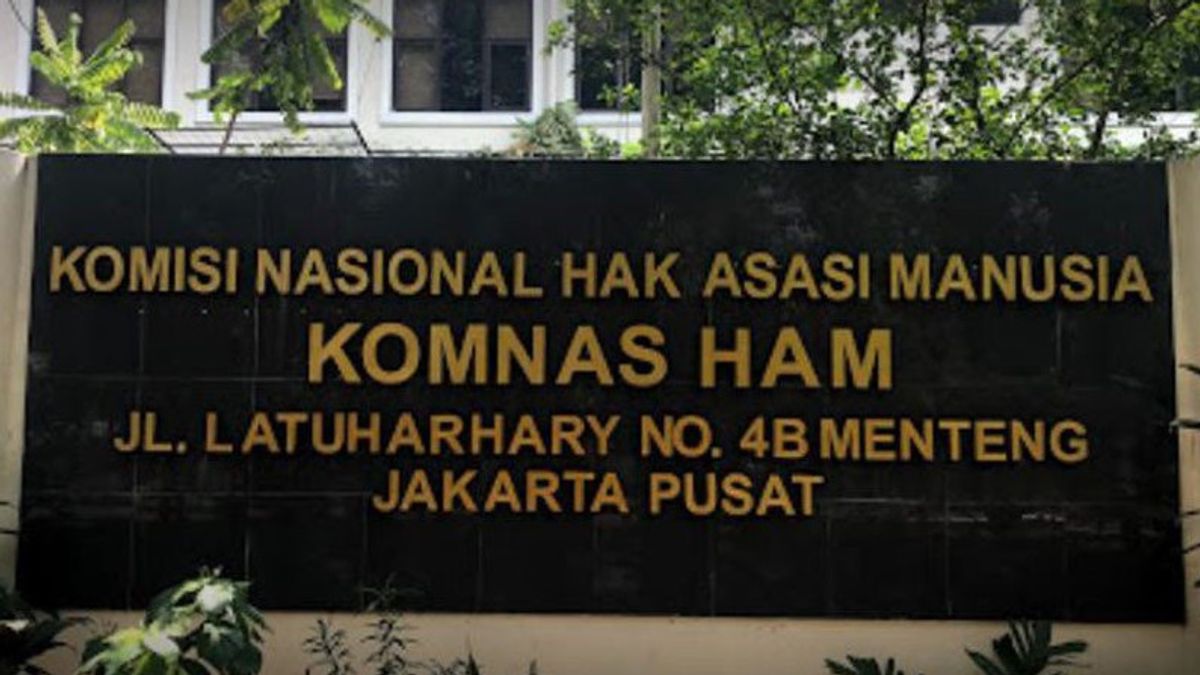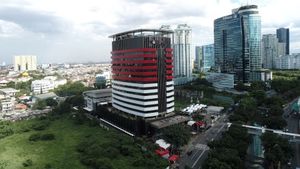JAKARTA - The National Human Rights Commission (Komnas HAM) announced the results of their investigation into the violent incident experienced by residents of Wadas Village, Purworejo, Central Java on February 8. This institution revealed that there had been violence that led to a sense of trauma in the community.
Through a press conference that was broadcast online, Komnas HAM Commissioner Beka Ulung Hapsara said that excessive use of force was found by the Central Java Police.
"That on February 8, 2022, there was an excessive use of force by the Central Java Police, which was marked by the deployment of large numbers of personnel and acts of violence during the arrest process," Beka said when releasing the findings of the investigation on Thursday, February 24.
This conclusion was obtained from a series of results of monitoring and investigations carried out by the team that was dispatched to Wadas Village. Although the Central Java Police said that only 250 personnel were deployed, 50 of whom were dressed in civilian or plain clothes, but the accompanying statement stated that the number of officers deployed was in the thousands.
From this investigation, Komnas HAM also found the fact that there were acts of violence experienced by residents who resisted andesite mining activities at the time of the incident. Where the perpetrators, from witness statements and videos, are police officers dressed in civilian clothes or thugs.
"The Indonesian National Human Rights Commission found that there were acts of violence during the arrests by the police on Tuesday, February 8, 2022, against Wadas residents who refused to quarry. As a result of these acts of violence, a number of residents suffered injuries to their foreheads, knees, and calves, and pain in their legs. several other body parts, but none of the victims were hospitalized," said Komnas HAM Commissioner Choirul Anam on the same occasion.
"From the identification of the perpetrators, the majority of violent acts were carried out by officers in civilian clothes/thugs during the arrest process," he added.
Anam detailed that at least 67 residents of Wadas Village were taken to the Purworejo Police Station and they were sent home the day after, on February 9. Apart from that, motorbikes and cellphones belonging to residents were also confiscated, although some have been returned and the rest are still in the process.
However, all the steps for returning residents and returning confiscated items still caused a follow-up reaction, namely the emergence of a sense of trauma. Anam said there were some residents who said they were afraid to go home.
This fear, he continued, even occurred four or five days after the violence in Wadas Village. "Besides, there is a potential for trauma, especially for women and children," said Anam.
Furthermore, Beka, who read out the conclusions of Komnas HAM's findings, said that there were a number of rights violations experienced by the residents of Wadas Village. First, there is a denial of the right to Free and Prior Informed Consent (FPIC).
This FPIC, explained Beka, is the right to give or withhold consent to andesite mining projects which of course have potential impacts on their land, livelihoods, and the environment around them.
Furthermore, residents also did not get accurate information about andesite mining and the Bener Dam project that should be carried out by the government and project proponents. This then triggers tensions between citizens and the government.
Another neglect of rights is when the police use excessive force to deal with people's resistance. Komnas HAM assessed that what happened was a form of neglecting the right to protect the personal integrity of citizens in defending their environment and life.
Then finally, there has been a neglect of children's rights to be treated differently from adults when dealing with legal processes and future guarantees not to experience similar expectations.
"The impact of the incident on February 8, 2022 in Wadas Village, the community suffered physical and traumatic injuries, especially women and children who were the most vulnerable parties," concluded Beka.
The English, Chinese, Japanese, Arabic, and French versions are automatically generated by the AI. So there may still be inaccuracies in translating, please always see Indonesian as our main language. (system supported by DigitalSiber.id)








